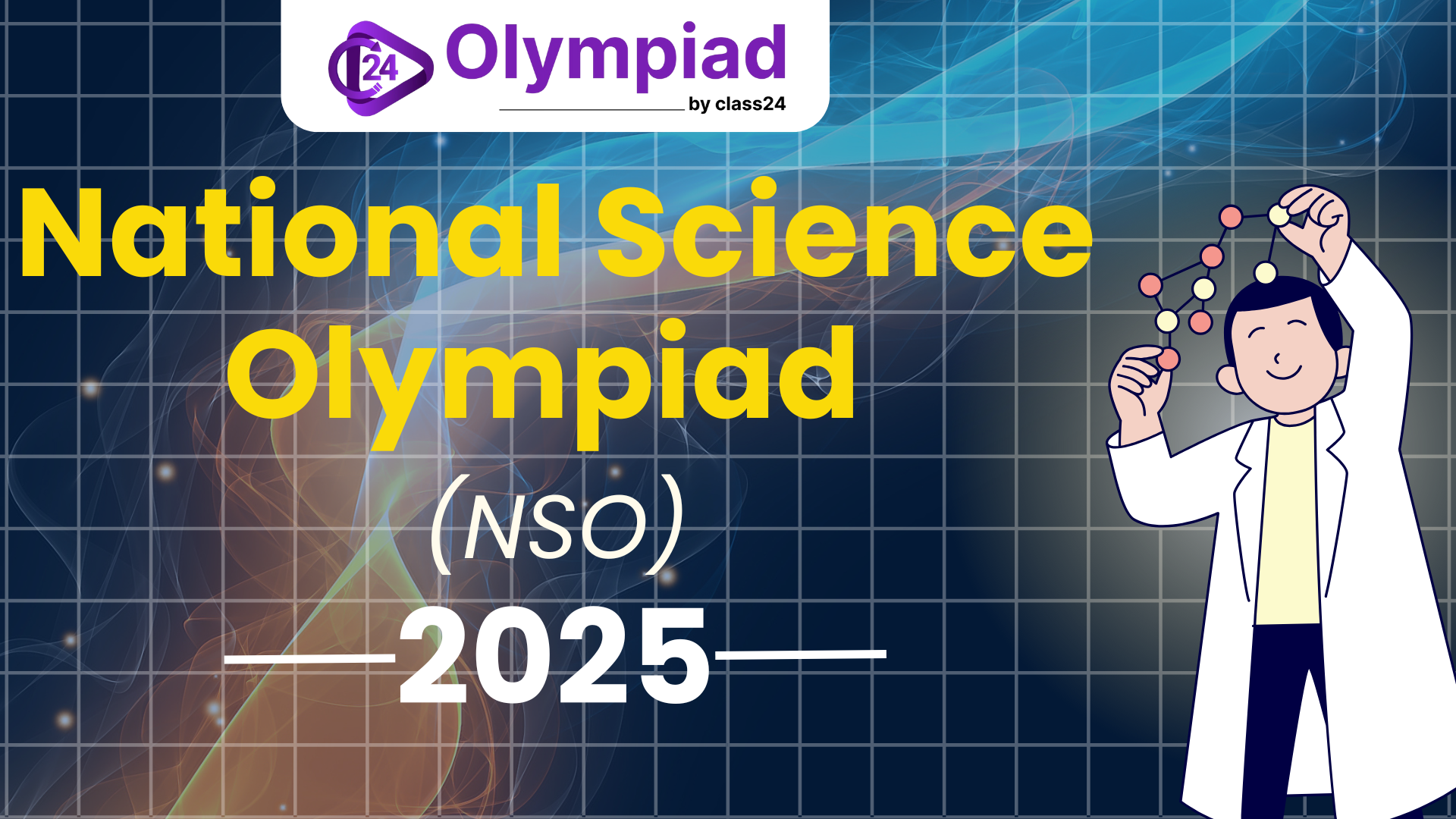
The National Science Olympiad (NSO) is a highly respected and well-known science event open to school students in India. Overseen by the Science Olympiad Foundation (SOF), the NSO aims to develop students’ scientific knowledge, problem-solving abilities and understanding of key scientific concepts in every class from 1 to 12. This Olympiad motivates students to explore science ideas from other sources and take part in science exams at a national level.
All the necessary information about the NSO 2025 exam is covered in this guide such as its structure, the subjects you need to study, who is eligible, how to prepare, registration process, important dates and when you will get your results.
The National Science Olympiad (NSO) is a yearly exam that measures how much science students know about Physics, Chemistry, Biology, Environmental Science and Logical Reasoning. The exam occurs in India and other countries to encourage children to use scientific thinking and analysis. By taking part in the NSO, students can prepare for careers in science, technology, engineering and mathematics (STEM). It also helps students prepare for various science Olympiads at national and international levels.
The topics included in the NSO exam are chosen based on how students think about different subjects from various classes. It consists of various areas and each one aims to assess skills such as logic and science.
| Class Level | Sections | Number of Questions | Marks per Question | Total Marks |
|---|---|---|---|---|
| Classes 1 to 4 | Logical Reasoning | 5 | 1 | 5 |
| Science | 25 | 1 | 25 | |
| Achievers Section | 5 | 2 | 10 | |
| Total | 35 | 40 | ||
| Classes 5 to 10 | Logical Reasoning | 10 | 1 | 10 |
| Science | 35 | 1 | 35 | |
| Achievers Section | 5 | 3 | 15 | |
| Total | 50 | 60 | ||
| Classes 11 & 12 | Physics & Chemistry | 25 | 1 | 25 |
| Achievers Section | 5 | 3 | 15 | |
| Mathematics/Biology | 20 | 1 | 20 | |
| Total | 50 | 60 |
There are two stages to NSO so students can be evaluated as they learn. The four schools hold Level 1 for everyone, while the best performers go on to compete in Level 2 for national standing.
Knowledge is evaluated in the following three major topics:
This level is open to students who have qualified by achieving a good score in Level 1.
Qualification criteria for Level 2 include:
The section outlines the groups and individuals who are eligible for NSO 2025. It tells parents which grades are included, what is needed to apply and which students are allowed to continue to secondary school.
Understanding the important dates is essential for participating well. We are providing tentative dates for Level 1 and Level 2 exams, along with when hall tickets will be issued and when the results will be announced.
| Event | Tentative Date |
|---|---|
| Level 1 Exam Date 1 | November 13, 2025 |
| Level 1 Exam Date 2 | 27th November 2025 |
| Level 1 Exam Date 3 | 11th December 2025 |
| Level 2 Exam Date | January 2026 (To be announced) |
| Hall Ticket Release | Two weeks before the exams |
| Result Announcement | Within 8 weeks after exams |
Note: The most convenient date for Level 1 can be picked by students and schools from the three available options.
The syllabus for NSO has been set so that it follows CBSE, ICSE, and many state board curricula, helping students understand their coursework better.
Logical Reasoning (All Classes)
Science Syllabus for Classes 1-10
Physics & Chemistry for Classes 11-12
Biology & Mathematics for Classes 11-12
Good preparation helps you achieve your goals. Some useful things to learn are studying tips, working with past papers, practicing logical thinking, taking mock tests and effective revision approaches to score well in NSO.
1. Understand the Complete Syllabus
2. Practice Previous Year Question Papers
3. Develop Logical Reasoning Skills
4. Practice with Mock Tests and do some Online Coaching too.
5. Revise Regularly
Your registration information is necessary for you to participate at the right time. In this part, you can find out how students apply to the school, what registration fees they have to pay and if waivers exist for certain individuals.
Following the exam, awards and results recognize what students have accomplished. There is information about result declaration, certificates, medals, scholarships and further opportunities for students who get top marks.
When students participate in NSO, they gain scientific knowledge, reasoning skills, are recognized academically and can qualify for national and international Olympiads.
Students participating in the National Science Olympiad (NSO) 2025 can experience science, improve their problem-solving and catch the attention of the nation. Following a good preparation plan, dedicated practice and knowing the structure of the exam can allow students to succeed in the Olympiad. Commitment and useful resources enable students to develop their scientific skills and prepare for a good future both at school and on the job.
Download class-wise Mock Tests & Answer Keys for NSO Stage 2 preparation (PDF format).
| Class | Paper | Mock Test PDF | Answer Key PDF |
|---|---|---|---|
| 6 | Level 2 PYP 2012–17 | 📄 Download | |
| 6 | Stage 2 Mock Test 1 | 📄 Test | ✅ Answer Key |
| 6 | Stage 2 Mock Test 2 | 📄 Download | |
| 7 | Level 1 PYP 2012 | 📄 Download | |
| 7 | Level 2 PYP 2012–17 | 📄 Download | |
| 7 | Stage 2 Mock Test 1 | 📄 Download | |
| 7 | Stage 2 Mock Test 2 | 📄 Test | ✅ Answer Key |
| 8 | Level 1 PYP 2014 | 📄 Download | |
| 8 | Level 2 PYP 2012–17 | 📄 Download | |
| 8 | Stage 2 Mock Test 1 | 📄 Test | ✅ Answer Key |
| 8 | Stage 2 Mock Test 2 | 📄 Test | ✅ Answer Key |
| 9 | Level 2 PYP 2012–17 | 📄 Download | |
| 10 | Level 1 PYP 2012 | 📄 Download | |




Leave a Comment